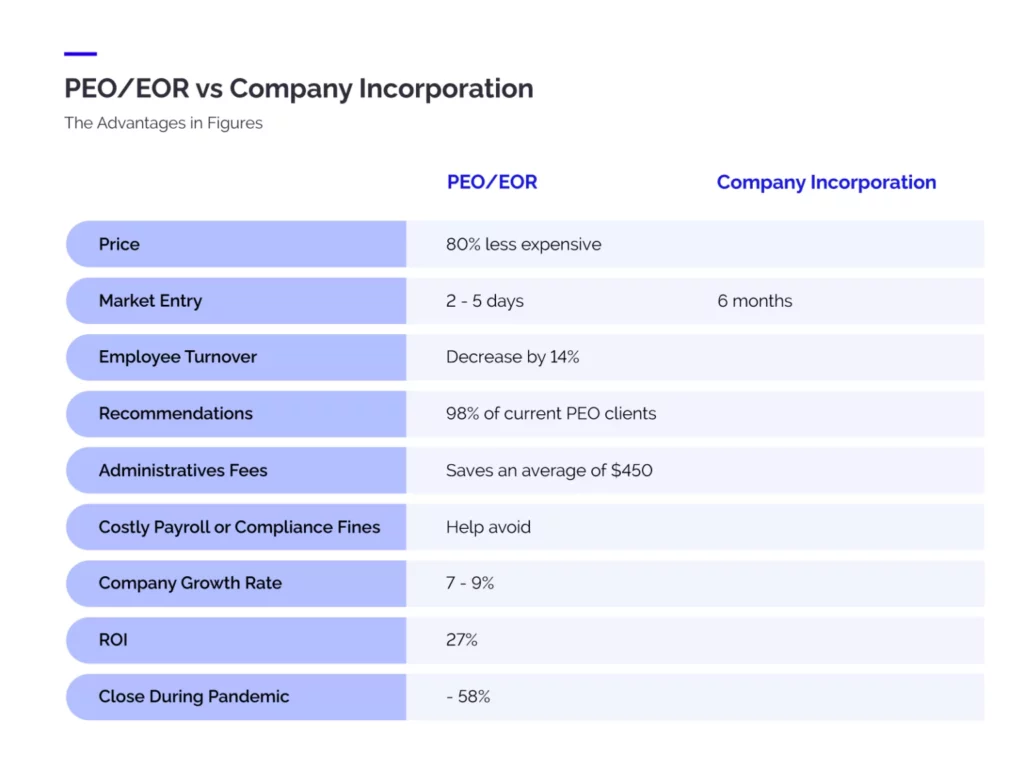Whether defined explicitly or not in national conventions of business law, Permanent Establishment (PE) is an essential concept to learn about both internationally and in terms of your target market. That’s because what defines a Permanent Establishment will determine how and where you pay tax.
As the world moves away from physical locations to more and more digital platforms, it’s a good idea to consider new ways to ensure your overseas operations have the compliance assurance you need to expand securely as well as rapidly. That’s why we’ve put together this guide, explaining some of the key facts you need to know about PEs, and how you can avoid associated complications through EOR (Employer of Record) services.
What is PE or Permanent Establishment?
The concept of PE likely originates from the old German Empire, where the confusing structure of the 39 different states led to serious taxation concerns. To simplify the system, companies had to name their state of origin, and tax authorities would tax them accordingly. This was so the state taxed companies in a single jurisdiction, therefore avoiding multiple taxation.
In its simplest form, a PE is a fixed place of business that generates income. These are taxable presences, historically tied to a physical location where a company operates either in its home country or abroad. Companies may have multiple PEs, leading to the potential for tax complications.
Unfortunately, different countries or organizations may have different specific definitions of what constitutes a PE:
- In France for example, a PE refers to a fixed business installation through which business is conducted or a dependent agent that conducts business activities on a company’s behalf.
- The OECD provides a list of potential PEs, such as workshops, offices, factories, mines, places of management, and so on (including possible exceptions such as places where stock is maintained, or storage spaces).
- India defines a PE as a place of business through which operations are carried out or as agents with the authority to carry out tasks such as sign contracts or regularly deliver goods and services
Unfortunately, none of these definitions is universal, and your situation will always come down to specific local regulations. If a company operates a permanent establishment in a foreign country, it is then likely they will have to pay taxes in that country, either as a tax on profit, corporate tax, or VAT.
However, double-taxation treaties between the home country of the company and the PE’s country of operation may allow the company to register for an exemption to these taxes.
The biggest complication to this concept is the fact that in the modern world, a “brick and mortar” definition no longer meets the needs of businesses that may exist entirely within a digital space.
This development has caused a number of legal confusions around the questions of when and where a company must pay taxes.
An example of this is the case of Spanish Dell in 2012 where the existence of a Spanish website was found to have constituted a permanent establishment despite the company having no locations or employees in the country. As a result, they were obliged to pay taxes in Spain, significantly increasing their costs.
New Permanent Establishment Rules in the Modern World
While there is no single set of rules that have so far been able to answer the question of digital PEs, some countries, and organizations are attempting to tackle the problem.
Since 2018, the EU has proposed that its member states tax all income generated within their own countries, regardless of the existence or lack of a company’s physical presence. This would seem like a modern solution to the problem if adopted worldwide and may eventually change the overall definition of a permanent establishment.
Today, the multitude of international political and fiscal treaties that exist between countries mean that it’s become essential to come to a common understanding on business taxation to avoid tax laws heavily penalizing companies for expansion.
In general, companies should try to become familiar not just with PE regulations as a general concept but seek the expert guidance of a professional consulting service if they’re uncertain about local permanent establishment definitions in their target market.
The Consequences of Permanent Establishment Risks
A PE will lead to a business having income tax, value-added tax (VAT) liability, and corporate income tax rate in a country. Typically, a country’s tax registry first determines these costs as part of the formation process.
In some countries, a company can use specific incorporation rules and PE definitions to avoid requiring the owners to pay business taxes in the country. However, this generally involves limitations on what a company can do in the country (such as with an Offshore Company in Lebanon).
When you begin operations in a country, you have to look into how local regulations define permanent establishments. Otherwise, you will find yourself at risk of additional taxation or fines and penalties for failing to pay the correct taxes.
What is an Employer of Record? How can an EOR protect your company from Permanent Establishment Risks?
An Employer of Record (EOR) is a type of employment outsourcing service that hires your workers on your behalf, offering the full range of Human Resources services as the legal employer to those staff. This is a way to ensure compliant employment in a country without the hassles of a local legal entity leading to permanent establishment risks.
It’s important to note that an EOR does not remove all PE risks, as the workers are still operating on your behalf and they’re still managed by you on a day-to-day basis. However, the EOR provider can give you the professional HR services support you need to accurately manage compliance, payroll services, and tax management in every country where you are operating.
Global EOR services are especially useful if your goal is to take your company abroad as a global expansion strategy will likely involve operating within various international legal and fiscal frameworks. An EOR like INS Global has the experience and expertise needed to navigate the various legal and fiscal frameworks involved in your expansion, all for a single monthly fee.

3 Key Considerations when Choosing an EOR to Reduce Your Permanent Establishment Risk
The Right Expertise
You need to be sure that an EOR has the right knowledge and experience to deal with common and uncommon problems that occur when operating abroad. This means the EOR has to be able to assure total compliance, guarantee the safety of your employees and your operations, and make sure you can always talk to experienced professionals who can give you the help you need, whatever the situation.
You can look at reviews from previous customers to get a good idea of how well an EOR services provider has been able to handle issues in the past. These reviews or comments should be readily available on a company’s website or third-party sites like Glassdoor or G2.
The Right Customer Service
The best EORs know that a positive solution is not only going to protect your employees throughout the expansion process but also help you to streamline your internal processes. This requires strong customer service skills to ensure you can deal with a minimum number of contacts to save time, while also making sure that all your fees are stated upfront.
Unfortunately, many EOR service providers may hide fees or provide substandard services after signing a contract. Because of this, you can always talk to INS Global for a second opinion.
The Right Presence
Your global expansion strategy will always be unique, and the market or markets you want to enter have their own unique situations or challenges. That’s why it’s essential you choose an EOR with a proven track record and network exactly where you are going to need them.
One of the main dangers of permanent establishments comes from not knowing how they are defined by each country. That’s why the best EOR partner has in-depth knowledge of your target market, including all relevant company and employment regulations.
This may mean choosing between an EOR with a strong specialty in 1 or 2 markets where you are going to be particularly focused, or finding an EOR that can easily handle employment outsourcing in multiple countries at once.
Use INS Global today to Streamline Your Expansion and Avoid Costly Risks
Whether you’re concerned about the risks of permanent establishments or you simply want to improve the way you expand abroad, INS Global is perfectly placed to be your EOR and global employment compliance assurance partner in 100+ countries worldwide.
Our global EOR services give you access to a safe and simple option to enter into the world’s biggest markets, with additional options for recruitment, invoicing, and ongoing payroll support. With the help of our experienced global mobility experts, you’ll never feel uncertain about your next step.
To learn more about our services, contact our team today.

SHARE